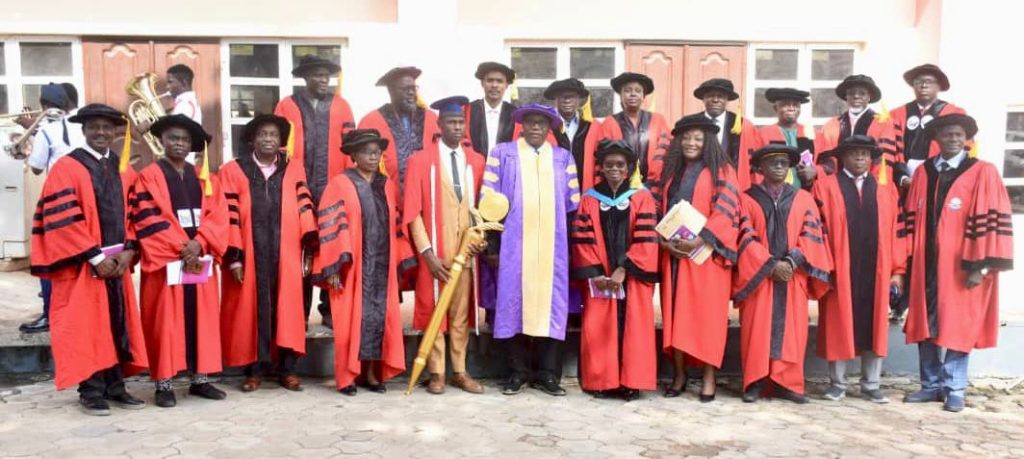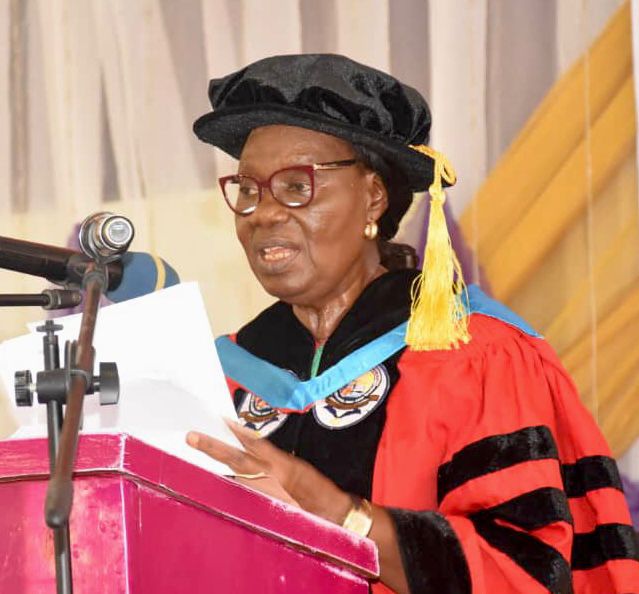Prof. Mary Banke Omoniyi has challenged the deep-seated cultural norms of gender-based discrimination, calling for immediate and multi-sectoral action to end the injustice.
She made the call on Tuesday, August 12, 2025, while presenting the 45th Inaugural Lecture of Adekunle Ajasin University, Akungba Akoko, titled “Sentenced by Anatomy: The Dilemma of the Nigerian Woman”,
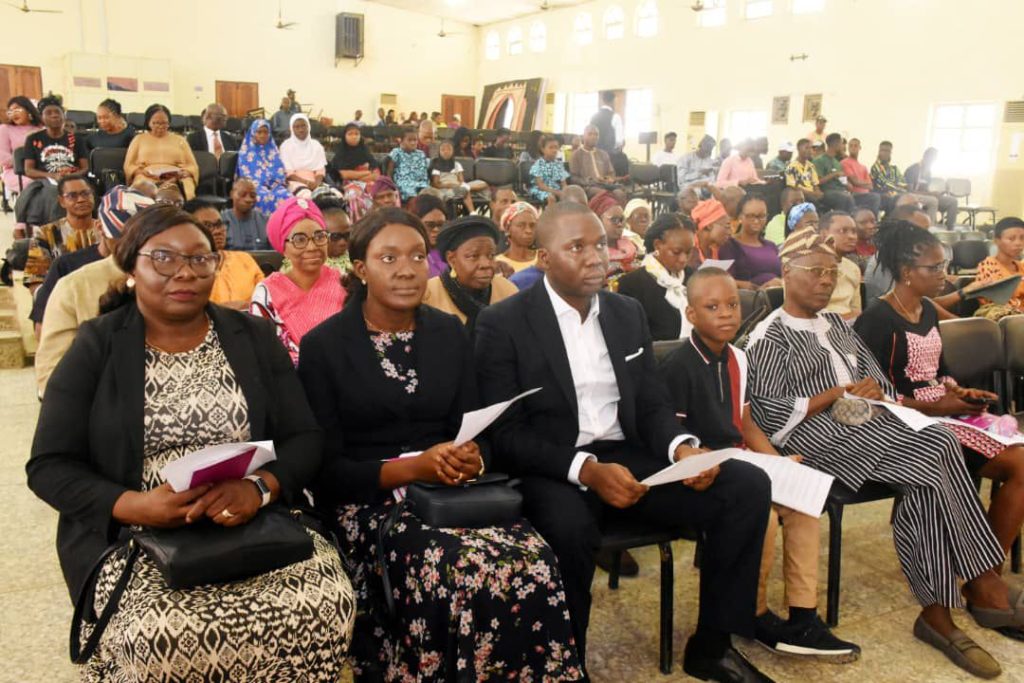
Prof. Omoniyi, who declared that, “Discrimination against women begins even before birth”, listed practices such as “hating the birth of a girl child, vilifying a woman, violating her, and discriminating against her in terms of gender, affinity, marital status, and beauty” as lingering social ills that continue to undermine women’s potential in Nigeria.
Drawing on decades of studies, Omoniyi described Nigerian women as “an endangered species and victims of their biological make-up”, whose societal contributions were often ignored.
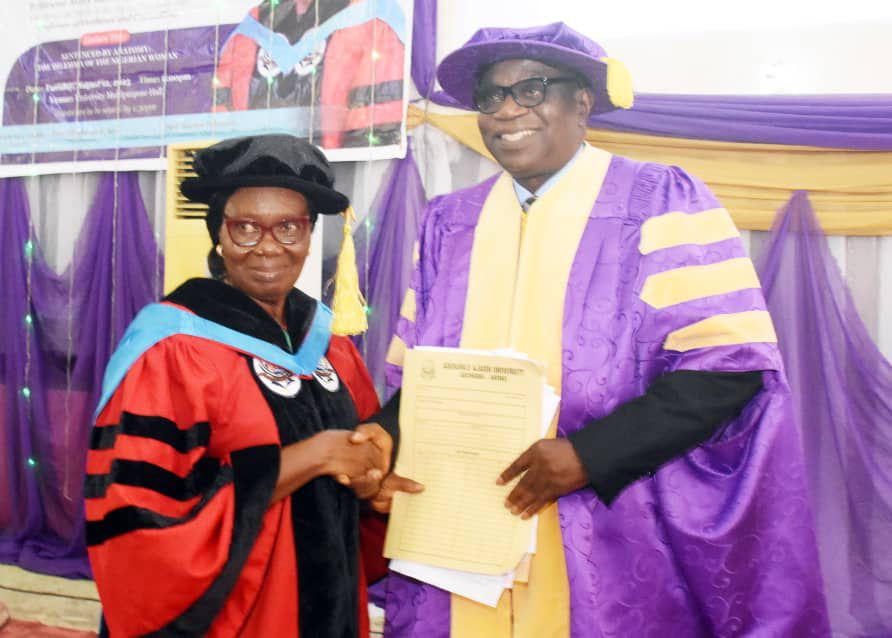
She lamented, “Women have always tried their best but with limited success. Their efforts are scarcely recognized even when they make sacrifices and go out of their way to do things. This has resulted in many setbacks economically, politically and psychologically for the women folk.”
The counselling expert warned that without reform, Nigeria’s development would remain stunted. “Since being born as a woman was not by choice but by nature’s design, women should be afforded the opportunity complementary to their role in society and should not be underrated as second fiddle in any sphere of life,” she emphasised.
Prof. Omoniyi called for a “cognitive reorientation for both genders” to dismantle patriarchal norms, gender equality education in schools, compulsory free education for girls up to secondary level, and a constitutional provision reserving at least 30% of political positions for women.
She also urged the establishment of counselling centres, microfinance programmes for women, a national sex offenders register, and strict enforcement of laws against verbal and psychological abuse, saying. “The society should cease to see women from the prism of commodity, and recognize them as proper partners in progress with their male counterparts in national development.”
She added, “The Nigerian police and other law enforcement agents should be legally bound to seriously take gender violence and discrimination against the female folks more seriously and desist from treating such with levity regarding it as “private and family affairs.”
Prof. Omoniyi noted, “Despite the recent increase in the wages of Nigerian workers, many families still find it difficult to make ends meet; men alone can no longer shoulder the family responsibilities. It is therefore counselled that the number of children should no longer be seen as “given” by God as the number of children in the home plays a significant role in stress experienced by mothers. Therefore, family planning should be encouraged to alleviate these pressures in order to achieve a more balanced family life.”
Citing global commitments, she reminded Nigeria of its obligations under the Convention on the Elimination of All Forms of Discrimination Against Women (CEDAW), ratified in 1992.
She warned, “Implementation cannot be delayed if we are serious about sustainable development. The international laws on the elimination of All Forms of Discrimination Against Women adopted since 1979 and ratified in 1992 by more than 100 member states of United Nations including Nigeria should be implemented fully without delay. Moreover, Nigeria as a prominent United Nations member, should be actively involved in the implementation of the various UN resolutions, calling for the integration of women into the mainstream of national development as a tool for sustainable development.”
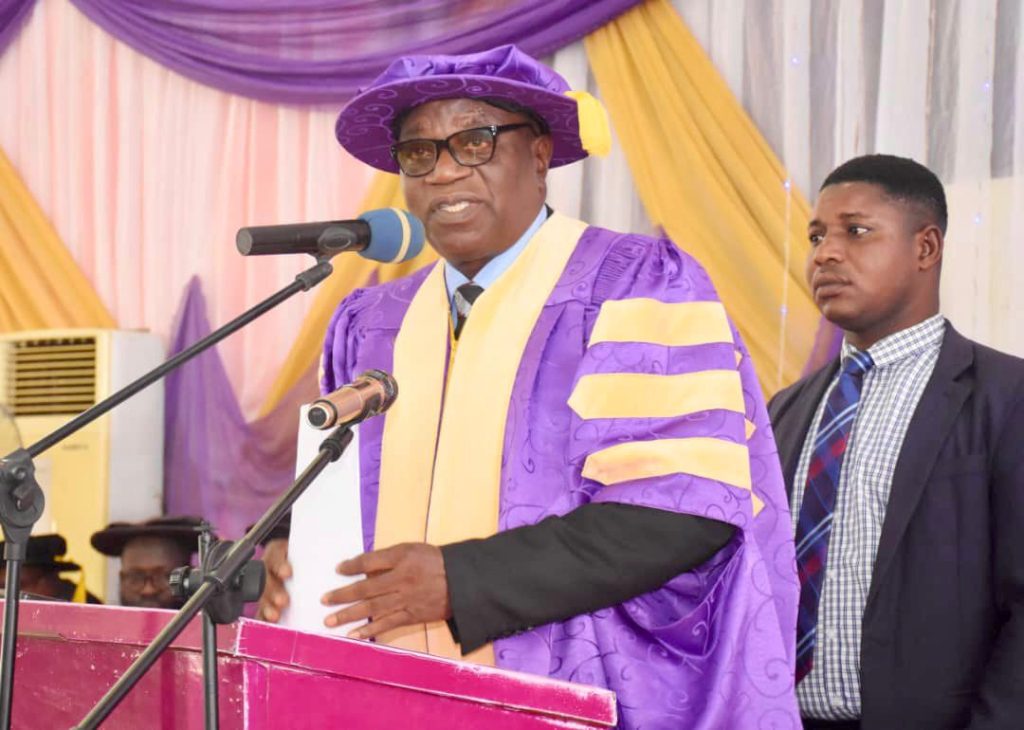
In his Opening Remarks, the Vice Chancellor and Chairman on the occasion, Prof. Olugbenga Ige, eulogised Prof. Omoniyi’s dedication to scholarship and the academic endeavour. He extolled her outstanding contributions to the body of knowledge, particularly in the field of guidance and counselling, noting that her research and academic engagements have not only advanced intellectual discourse but have also provided practical solutions to real-life challenges.. Mary Banke Omoniyi Challenges Gender Discrimination, Calls for Urgent Action
